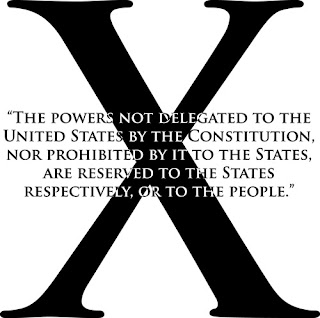Tenth Amendment Center: Today in History: Woodrow Wilson Signs the Federal Reserve Act

...from Tenth Amendment Center Today in 1913, The Federal Reserve Act was signed into law by Woodrow Wilson. One of the most deplorable laws in the history of the United States, the act allowed for a cartel of banks to establish a legalized monopoly on the printing of currency, assured the continual artificial manipulation of interest rates, and perpetuated the most inequitable and callous of all taxes – inflation. Many of the founders were adamantly opposed to central banks for these precise reasons. Thomas Jefferson wrote that he considered such banks to be more dangerous than standing armies, and wrote that paper was the “ghost of money, and not money itself.” James Madison was equally disturbed by the emissions of paper money under the Articles of Confederation, remarking that “restraints against paper emissions and violations of contracts are not sufficient.” Under that system, the disastrous paper money experiment of the Continentals, along with inflationary state bills of cre
